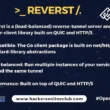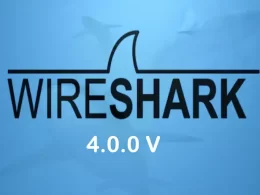Google Enters the Ring: Code Assist Challenges GitHub Copilot for AI-powered Development
The world of coding just got a bit more competitive (and hopefully more productive) with Google’s announcement of Code Assist, its new AI-powered development companion. This follows the highly popular GitHub Copilot, raising the question: how do these AI assistants stack up? Let’s dive into what Code Assist offers and how it compares.
What is Google Code Assist?
Code Assist is an AI tool designed to streamline the coding process. It utilizes machine learning to understand your code and context, offering suggestions for completing lines, generating entire functions, and even helping with debugging.
Gemini Code Assist can also provide summaries of complex log entries in Cloud Logging and errors in Error Reporting to help you to understand and troubleshoot issues.
Gemini Code Assist uses large language models (LLMs) that are developed by Google. The LLMs are fine-tuned with billions of lines of open source code, security data, and Google Cloud-specific content such as documentation and sample code.
Announcing Gemini Code Assist, the evolution of the Duet AI for Developers, which now uses our latest Gemini models. It offers AI-powered assistance to help developers build applications with higher velocity and quality in popular code editors like VS Code and JetBrains. Gemini Code Assist is an enterprise-grade coding assistance solution that supports your private codebase wherever it lives — on-premises, Gitlab, Github, Bitbucket, or even across multiple repositories. Built with robust enterprise features, it enables organizations to adopt AI assistance at scale while meeting security, privacy, and compliance requirements.
Said Brad Calder Vice President and GM, Google Cloud
How is it Different from GitHub Copilot?
While both Code Assist and Copilot offer code completion and generation, there are some key distinctions:
- Focus: Copilot seems geared towards individual developers, integrating seamlessly within popular IDEs like Visual Studio Code. Code Assist, on the other hand, is currently aimed at enterprise use, with a focus on cloud-based development environments.
- Functionality: Copilot boasts a wider range of supported languages, while Code Assist currently focuses on popular languages like Python and Java. However, Google promises future expansion in language support.
- Accessibility: Copilot currently requires a paid GitHub Pro or Copilot subscription. Google hasn’t revealed the pricing or availability model for Code Assist yet.
How to Use Code Assist (for Now):
Since Code Assist is still under development, access is limited. However, Google offers resources and documentation for those in the beta program. Here’s a glimpse of what to expect:
- Connect to Google Cloud: This is the first step to enable Code Assist within your development environment.
- Select Your Code: Highlight the code section where you need assistance.
- Prompt Code Assist: Use a text prompt to describe your desired functionality or ask specific questions related to the code.
- Generate or Refine: Code Assist will generate suggestions based on your code and prompt. You can accept, modify, or reject its suggestions.
How Gemini helps with coding
Gemini provides assistance with coding and code-related tasks. We recommend that you test and review all code. Gemini provides citation information when it directly quotes at length from another source, such as existing open source code.
Act Gemini Code Assist as Security Expert

Last year, Google became one of the first major cloud providers to make gen AI available to defenders.
Now, they are introducing Gemini in Security Operations to Chronicle, which will help to enhance the skills of security teams and increase their productivity, making it easier for them to detect, investigate, and respond to threats.
By the end of this month, a new assisted investigation feature will be generally available. It will convert natural language into new detections, summarize event data, recommend actions to take, and guide users through the platform via conversational chat.
- Gemini in Threat Intelligence, now in public preview, provides instant insights on threat actor behavior via conversational search. It automates web crawling for relevant Open-Source Intelligence (OSINT) articles and provides concise summaries to aid analysts in enhancing the efficiency of their threat research.
- Gemini in Security Command Center, currently in public preview, summarizes critical alerts for vulnerabilities, and provides recommendations to mitigate risk.tential exploits in simulated attack paths, helping organizations to proactively mitigate risk.
The Future of AI-powered Coding
The arrival of Code Assist signifies a growing trend in AI-assisted development. With both Google and GitHub competing in this space, developers can expect more powerful and versatile tools in the future. This could lead to faster development cycles, improved code quality, and a lower barrier to entry for aspiring programmers.
Stay tuned: As Google releases more information about Code Assist and its accessibility, we’ll have a clearer picture of how it compares to Copilot and its potential impact on the coding landscape.











